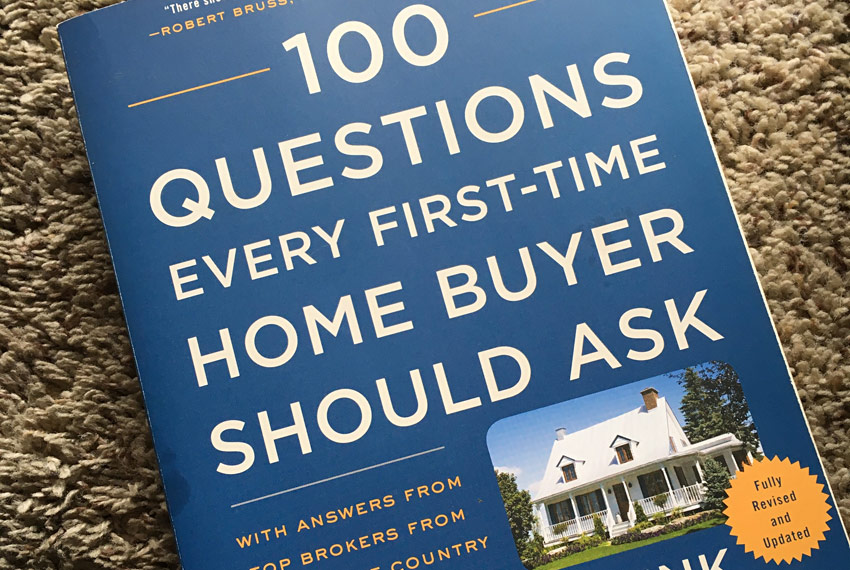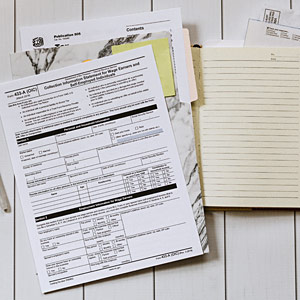Stalex House
Live, Love, Write, Photograph, Travel - Create Your Life. Capture & Share Your Story
Detailed Notes for Financing Your Home from "100 Questions Every First-Time Home Buyer Should Ask" Book
Home
February 05, 2020

I bought 5 home buying books to get started on learning more about home buying experience.
One of the books is very good. It goes in-depth about the topic and answers most of the questions I have as I read.
Currently we are in the financing/mortgage stage of the process.
The following are notes I took are from Chapter 6: The Nuts and Bolts of Financing Your Home in "100 Questions Every First-Time Home Buyer Should Ask" by Ilyce R. Glink.
Below are the notes...
What is the Difference Between Mortgage Broker vs Mortgage Banker
- Mortgage Brokers are involved with the origination side of the business. They take loan applications, process the papers and then submit the files to an institutional investor
- Mortgage Bankers go a step further. They, too, work within the origination side of the business, but they also get involved with servicing the loan and closing the loan in their own name with their own funds. Mortgage banker would take the loan application and lend you the money from the bank's own account. Once you closed on the loan, the same company might service your account, collect payments, and make sure your real estate taxes are being paid. Or the company might sell your loan on the secondary market (to institutional investors) and then relend the money.
Be Aware of Loan Officer Fee Premiums
- Be sure to ask your loan officer if your loan carries a service fee premium that is being paid to him or her. The service fee premium should be disclosed. The higher the fee, the greater the chance that your loan's interest rate is actually above the going market rate.
4 Mortgage Search Questions
- Find current interest rate lenders are charging for their most common mortgages
- How many points (a point is 1% of the loan amount) they are charging to make the loan
- The annual percentage rate (APR) of the loan (which adds up all the extra costs and fees and amortizes the cost over the life of the loan).
- What length of loans the mortgage company offers (7/23 or 5/25 – which are fixed for either seven or five years and then convert into one-year adjustable rate mortgages or 30-year fixed, 15-year fixed, 5-year balloon, etc).
Where to Find Current Mortgage Rates
- Visit the biggest lenders in the country (Bank of America, Wells Fargo, Quicken Loans, Citibank, and Chase) or online (Zillow, Bankrate, Realtor, LendingTree and HSH).
Investigate Mortgage Places
- How long they been in business
- How many mortgages they have closed and around how much money
How to Apply for Loan
- Applying for loan is different than getting prequalified.
- Getting prequalified is like dating. The lender is taking your word and then comes up with a dollar amount.
- If you want to get pre-approved is actually when you apply for a loan. Applying means providing the documentation and proof the lender needs to determine your ability to repay your loan and what kind of a risk you'll be. It means putting in your SSN and provide electronic signature.
- You'll probably need to pay an application fee and it will cost few hundred dollars and be credited towards the closing cost.
Collecting Information for Getting Preapproved
- Copies of all bank statements for the last 3 months
- Copies of all account statements, including stock brokerage accounts
- Most recent pay stub for you and your spouse or partner
- W2 form for the past 2 years
- If you are self-employed, the past 2-years of tax returns plus a profit-and-loss statement for the year to date
- A gift letter, if part of the money you're using to buy the house has come as a gift (may not need to be notarized and needs to be written by the gifter stating that it is a gift and doesn't need to get repaid)
How Many Points If Any Do You Want to Pay?
- How many points do you want to pay at the closing?
- Point = 1%of the loan amount
- You may have some points or fees but the more points you pay the lower your interest rate will be. If you pay no points up front, you'll have a slightly higher interest rate and pay more over the life of the loan.
- Points are paid in cash at the closing but the federal government allows you to deduct them from your income taxes during the year of the closing.
- You can amortize your points (pay them over the life of the loan), which will ultimately increase your rate. And sometimes the seller will pay the buyer's closing cost.
Good Faith Estimate of Closing Cost
- Every time you put in a application for a loan, the lender is required by federal law (RESPA) to give you a good-faith estimate of your closing costs. That sheet of paper will detail everything and you may need to sign it.
- The new rule from 2015 (TILA-RESPA) now requires lenders to send you your closing documents in minimum of 3-days before closing so you have a chance to read them.
- If documents are not provided at least 72-hours in advance (you have to sing them for proof) then the clock starts all over again and the closing is postponed.
- It is called Closing Disclosure Form and it is 5-pages.
Get Copy of All Documents You Signed
- Once you've finished the application, get a copy of all documents you signed.
Online Application
- It is very common that all documentation for loan mortgage you do is online or over the phone and you never see the loan officer, maybe during the closing.
What Kind of Documentation Will I Need for My Application
- All W2s
- Copies of completed tax papers for the last 3 years (include any schedules or attachments)
- Copies of one month's worth of pay stubs
- Copies of last 3 bank statements for every bank account, IRA, 401K or stock account. Most recent.
- If self-employed, complete copies of the last 2-years business tax returns and a year-to-date profit-and-loss statement and balance sheet with original signatures
- List of addresses in last 7 years
- If you made any large depoists (that is, larger than your monthly income) into your bank accounts in the last three months, you will need to provide an explanation as to where the funds came from with proof)
- Addresses and account numbers for ever form of credit you have
- Documentation to verify additional income, such as Social Security, child support, alimony
- For FHA or VA loan, bring copy of picture ID and copy of your SSN card, also bring proof of enlistment
The Rate Lock
- To eliminate uncertainty and changeable interest rate, borrowers may pay their lenders for the privilege of locking in a specific inters rate and number of points. The lock is good for predefined time usually 30-60 days. If you lock in on your rate you must close on your mortgage before the lock expires or you lose the preset interest rate.
- The lender may give you a lock on the interest rate that is intentionally too short given the current market conditions.
If Rates Go Up
- If rates begin to rise the loan officer will have to pay the difference between your locked-in interest rate and the current market rate out of his or her pocket to close on the loan. Loan officers loath to pay out the difference. They will often find something "Wrong" with your application at the last minute, forcing you to accept a higher interest rate or more points.
- Some recommend that you apply for two different mortgages at two different companies. Float the rate with one application and lock in the other. "If you have trouble with one of the lenders, you can always play each against the other". This method will cost you additional application fee of $200-$500, unless you can get the lender to waive the fee until closing. Even then, you might owe a "breakup" fee.
- Never accept a verbal lock.
- Get copies of all everything you've signed handed to you.
- Secure a good faith estimate of closing costs before you sign anything or pay anything.
- Don't make any major lifestyle changes after the application has been made and before you close on the property.
- Keep in touch. Keep in direct contact with your loan officer throughout this process, at least weekly. Experts say that if you aren't going to be approved for a loan, the lender should know within days, maybe even minutes but certainly in no more than 2-4 weeks. Typically lenders can tell you almost instantaneously if you are approved. Credit reports, tax records, employment verification can be pulled up while you are sitting in the office and virtually instantly if you are doing it online. If you aren't approved while you're sitting in the office, you'll want to call every couple of days to see if the loan officer needs any additional information.
- Paper trail. Once the loan officer tells you they have all the documentation required for your loan, you should send an email confirmation that and asking for a commitment letter. You'll also want to keep a copy of every bit of paperwork and correspondence between you and the lender.
- Don't let the lender pressure you into a higher interest rate because the market rates went up. You were locked in what you were locked in.
Mortgage Application Fees
- Application fee which can range from nothing to $500
- Appraisal fee, which can range from $200 to $300
- Credit report fee, which ranges in price from $25 to $100 per person
Fees
- Don't pay underwriting fee.
- The time to negotiate your fees with the lender is before you sign you application.
Closing Cost
- Paying about 1% of the loan amount in closing costs and fees is fair. So on a $200,000 loan, you'd expect to pay around $2,000.
Prepayment Penalty
- Don't get a loan with a prepayment penalty, meaning that you will be penalized if you try pay off your house or refinance or sell within a certain amount of time after buying the house, such as the first 2-4 years.
Smooth Mortgage Application Process
- Straighten out your finances
- Fix your credit issues, find out your credit score, fix errors, mistakes
- Gather information you need ahead of time
- Qualify your lender
Hope these notes help.
I recommend getting the "100 Questions Every First-Time Home Buyer Should Ask" book by Ilyce R. Glink.










